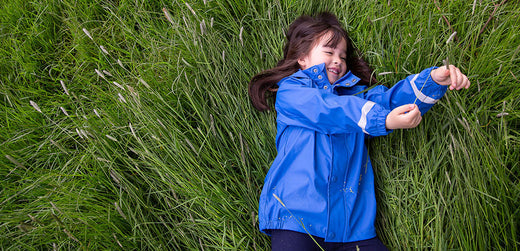
The Benefits of Play
Play is child’s work! We asked Claire Burgess, a Family Consultant from Bespoke Family to share more about the benefits of play for children, with excerpts from this article written by Dr Karen McInnes.
Maria Montessori once said ‘Play is the work of a child’. Not everyone would agree to play being likened to work (!), but it is useful in helping us to recognise the importance of play for our children.

Why do children play?
Play is essential for children’s development and learning. Without play, according to research, children’s early development can be affected along with their social and emotional skills later in life. Free play is generally considered to be the most beneficial form of play. This is when your child is in control and there is no pre-determined outcome – e.g., what they are doing is more important than any end product.
What are the main benefits of play?
- Being physical during free play enables children to expend energy and keep fit, which makes them feel strong and good about themselves. They can also take physical risks, within safe boundaries, which, when successful, makes them feel confident about their abilities and raises their self-esteem. When they need to try again to be successful, they learn resilience which acts as armour plating to help combat any stress.
- Tuning in to their emotions - In imaginative free play children experience emotions and learn to cope with them. They may experience emotions, such as fear, anger or anxiety and, through play opportunities, they learn to cope with them and be empathetic towards others experiencing those emotions. Play helps children gain skills to control themselves as well as experiencing feelings of wonder and joy.
- Social skills - Free play can be sociable or something they experience on their own - both of which are valuable. Playing with family members or other children strengthens bonds and provides a place and feeling of safety for children, now and as they grow older. Being allowed to have time alone is also important for learning about themselves and what they can do independently.
- Developing communication and problem-solving skills - Being sociable requires communication to forge strong relationships with others – this then leads to feelings of happiness and a supportive network of friends. Being able to talk about emotions enables a child to understand them and to ask for help when they need it. Communication is also a part of solving problems. In free play children must solve their own problems, which also helps to develop confidence and self-esteem.

How about the benefits of playing outside?
In addition to the benefits above, playing outside
- encourages children to appreciate nature and their environment.
- gives them more opportunity for risk taking and independent play – being outside gives children a sense of freedom and space for big movements like jumping, kicking, running etc!
- exposes them to sunlight which helps with vitamin D levels, keeping bones, teeth and muscles healthy.
- is a low cost option – even if you don’t have a garden there is always a local park or green space to visit!
- And finally, all that fresh air really does help babies and children sleep and eat better!
For more blogs like this on a huge range of topics from behaviour to potty training, sleep and siblings, visit bespokefamily.co.uk. Bespoke Family also offer 1:1 parenting consultations as well as offering lots of parenting guides, delivered as webinars via their website. Or follow them on Instagram: @BespokeFamily








